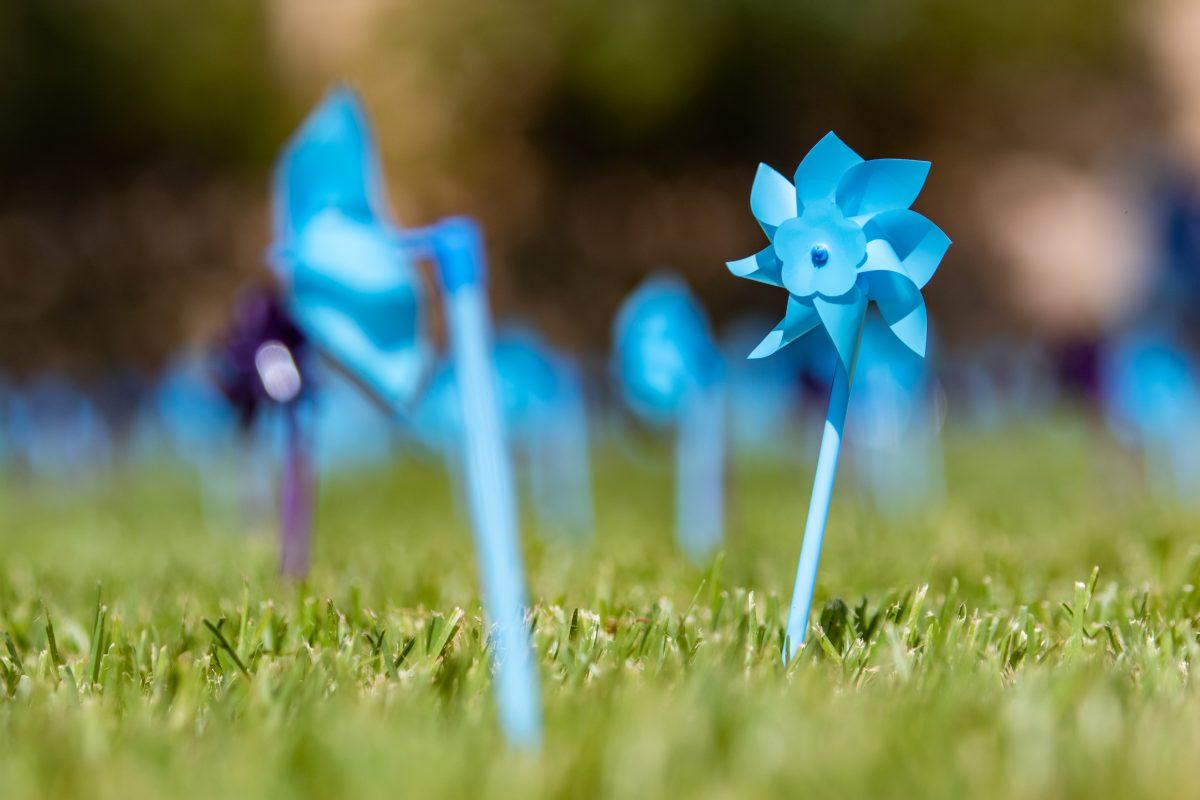Editor’s note: This article discusses suicide. If you or a loved one is struggling with suicidal thoughts, please call or text the Suicide and Crisis Lifeline at 988, or 1-800-273-8255.
During Suicide Awareness Month, Aggies united on campus during a range of events focused on connecting students with resources.
University Health Services scheduled a calendar of events for all of September that highlighted suicide prevention resources on Texas A&M’s campus, including hotlines, prevention training, support apps, counseling and more.
On Sept. 19, there was a hope tabling event at the Starbucks by West Campus, where students got the opportunity to talk with counselors about scheduling sessions and making appointments while receiving free coffee. On Wednesday, Sept. 27, there will be a first-come, first-serve free yoga class in the Memorial Student Center, or MSC, called “breathe in, stretch out” from 11 a.m. to 1 p.m.
Health educator Sterling LaBoo said during Suicide Awareness Month, University Health Services collaborated with the school and the community to host events at A&M. One of those events includes the helpline tabling event on Sept. 28 in the MSC from 11 a.m. to 1 p.m.
“Students get a chance to get some cool swag from [helpline volunteers] … and also learn about what the helpline is, which it’s a line for students to call if they need to talk to someone, and it is confidential,” LaBoo said. “Students can share whatever and know that they’ll have a non-judgmental, supportive ear on the other end.”
Senior Director of Counseling & Mental Health Care Michelle Bettin, Psy.D, said mental health is correlated with everything in the mind — our emotional states, behavior and learning ability.
“We need to attend to our mental health because it can impact all these areas of functioning,” Bettin said. “Essentially, we are talking about the quality of life, and poor mental health can contribute to physical symptoms and even chronic health conditions.”
The A&M Counseling and Psychology website lists the addresses and contact numbers for emergency rooms and crisis hotlines. Additionally, A&M provides a same-day crisis hotline that is open 24 hours on the weekends and 4 p.m. to 8 a.m. during the week.
“If those thoughts are really serious or recurrent or distressing, that is an indication that you should get more immediate and professional help,” Bettin said. “If it is a life or death emergency, so the person is not safe right now, that is when you call 911.”
Bettin said students need education if they are trying to help a friend with suicidal thoughts. Students can learn how to help their friends who have suicidal thoughts by attending gatekeeper classes, which are in-person, online and anonymous, that connect them to resources.
“There’s something called ‘QPR,’ which is [to] question, persuade, refer, and there’s another gate for training through Kognito,” Bettin said. “Those gatekeeper training will become part of the support system here on campus for other students.”
There are small or large warning signs that indicate if someone wants to end their life, Bettin said.
“Giving away prized possessions, a feeling of extreme hopelessness [and] feeling like a burden can be subtle warning signs,” Bettin said. “The sudden life changes can be a serious breakup … health diagnoses or a parent’s divorce, any of those big life changes can be a trigger for folks.”
In the need to inform someone of something seen or heard, there is a “Tell Somebody Report Form” that can be filled out for non-immediate responses.
“Students can submit a report that goes to case managers who are there to connect people,” Bettin said. “It is always better to do something than to do nothing.”
Understanding a person’s identity is how counseling can help, Bettin said, and it cleans up the feelings that disrupt one’s life.
“Counseling can help you understand and manage those thoughts … and connections that will increase your safety and [overall] well-being,” Bettin said.
Construction science senior Luke Thomason said he had a friend who committed suicide because of cancer.
“Whenever you see a picture of the person that is no longer here, it is a weird feeling of ‘this person is gone,’” Thomason said. “You can’t recreate this moment, hang out or have late-night chats with them.”
Thomason said he thought it was an ordinary night messaging his friend when she started asking questions about whether he was satisfied with life. Though when he asked her the same question, he would receive no response.
“I tried to keep talking, but she stopped responding and I still look at the message sometimes to look at the time stamps,” Thomason said. “The last message that was sent was 1:47 a.m., and the day afterward, I came to find out within 30 minutes she wasn’t alive anymore.”
Thomason said even though he could not do anything about the situation he was unaware of, it is important to know how to talk with someone who has suicidal thoughts. From his personal experience with his late friend, he said it made him think about the meaning of life.
“Life is certainly a gift and not an accident,” Thomason said. “We are also very fortunate and gifted when we are alive and when we were born.”









